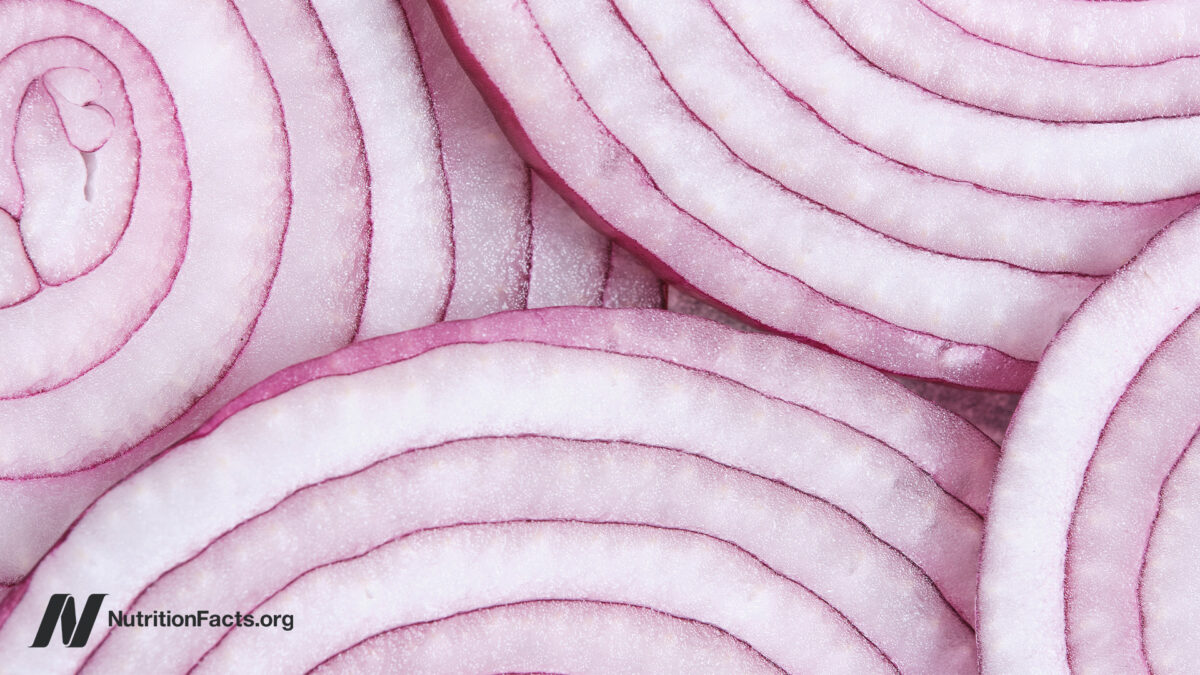Water vs. Tea: Which One's Better To Drink When You're Constipated?
Bookmark this for the next time you're backed up.

Image by Sonya Khegay / Stocksy May 05, 2025 We carefully vet all products and services featured on mindbodygreen using our Our selections are never influenced by the commissions earned from our links. Feeling constipated is never fun, but it's something people of all ages deal with from time to time. When you're backed up, it can feel like nothing will make a difference—hence why many people turn to laxatives and other over-the-counter treatments. However, dealing with constipation naturally is a healthier move for many people. While tea alone won't eliminate constipation, it can be part of a well-rounded tool kit we call on whenever things get a little sluggish. Here's what you need to know about using teas for constipation, including safety, limitations, and which types are effective.
The need-to-knows
What causes constipation?
Constipation has several causes, some of which are out of your control.
While occasional constipation is commonly triggered by dehydration or changes in diet, more chronic types of constipation can have underlying causes, such as bowel disorders and food allergies.
Occasional constipation1 is defined as constipation that occurs infrequently and only lasts for a few days or a few weeks. This type of constipation can usually be handled with lifestyle and dietary changes.
Here are some of the most common causes of both types of constipation:
Though these are the most common causes of constipation, it's important to avoid self-diagnosing.
If you're experiencing constipation and aren't sure what's causing it, it's best to be evaluated by a health care provider who can rule out underlying health conditions and perform appropriate testing to get to the bottom of your bowel issues.
How can tea help?
Tea is a common home remedy for many ailments, from occasional colds to sore throats. But can tea help treat constipation? Well, it depends.
First off, tea can help hydrate you, which can support gastrointestinal health and help keep poop soft and comfortable to pass. Additionally, some types of tea have laxative effects, meaning they contain substances that get things moving in your intestinal tract and stimulate bowel movements.
Though many people swear by certain teas when they're feeling backed up, research on the effects of tea on constipation is limited.
However, some studies have shown that some teas, including fennel tea and multi-ingredient teas like Smooth Move tea, may offer benefits for those who struggle with constipation.
Also, preclinical evidence, meaning evidence from animal and test tube studies, indicates that certain teas contain compounds that have bowel-stimulating activities.
Summary
While you shouldn't depend on tea to help you go to the bathroom, drinking certain types of tea may help alleviate occasional constipation. There isn't much clinical research on using tea for constipation; most evidence is anecdotal.
Best teas for constipation
Though certain teas have been shown to support digestive health and ease constipation in animal and cell studies, evidence supporting the use of tea for constipation is limited. That said, the following teas may be helpful to drink the next time you're experiencing constipation. However, it's important to note that some of them should only be consumed in moderation and won't be suitable for daily sipping.
"Senna10 tea is a popular herbal tea that is specifically used to help with constipation," Amanda Sauceda, RDN, tells mindbodygreen. Senna is considered a stimulant laxative, meaning it promotes bowel movements by stimulating nerves in the gastrointestinal tract and speeding the movement of poop through the bowels.
Senna is available as an over-the-counter medication and can also be found in tea form. Though there's plenty of evidence to support the laxative effects of other forms of senna, like liquids, powders, and tablets, there's a lack of research on senna tea. However, several studies have found that multi-ingredient teas that contain senna, like Smooth Move Tea, can be effective in easing constipation.
For example, a 2006 study published in the Journal of the American Medical Directors Association found that compared to a placebo treatment, drinking Smooth Move tea once per day significantly increased the number of daily bowel movements11 over a 28-day period in older adults with chronic constipation.
Additionally, a 2010 study found that adults with chronic constipation who drank tea containing senna, fennel, elderberry, and anise three times per day for five days experienced significant increases in daily bowel movements12 compared to when they took a placebo treatment. While these results are promising, it's unclear how senna-only tea impacts bowel movements.
Potential downfalls:
Senna should only be used as directed to help with occasional constipation, as long-term use of higher doses can lead to adverse side effects, like liver damage10 and laxative dependence. "It's important to note that you don't want to rely on senna for regular bowel movements," says Sauceda. If used for too long, your bowels can become dependent on the tea.
The bark of the cascara sagrada shrub contains substances called cascarosides that have laxative effects. Like senna, cascara is considered a stimulant laxative and is available as an over-the-counter medication, but it can also be consumed as a tea.
Though cascara was FDA-approved for use as an over-the-counter drug for constipation, its approval was revoked in 2002 due to lack of evidence.
Though cascara is known to have bowel-stimulating properties and some people swear by cascara tea for constipation, it's currently unclear if this tea is effective for treating constipation.
Potential downfalls:
If you're interested in using cascara tea, it's important to only use this tea as recommended. Like senna, cascara can cause liver injury13 and symptoms like abdominal cramping when taken in higher than recommended doses over long time periods. For this reason, it's recommended that cascara use be limited to a week or less.
Pu'er tea is a type of fermented Chinese tea that may have anti-constipation properties. In fact, Pu'er tea has been used as an herbal remedy for constipation14 in China since ancient times.
However, due to a lack of research, it's unclear if Pu'er tea improves constipation in humans.
Fennel is a medicinal plant that's rich in therapeutic compounds that may be helpful for those with gastrointestinal disorders, like chronic constipation.
A 2022 study published in the Journal of Integrative Medicine18 that included 50 older adults with chronic constipation found that those who drank a tea containing fennel and damask (a type of rose) twice per day for four weeks had more significant improvement19s in constipation severity, stool consistency, and their quality of life compared to those treated with a laxative called polyethylene glycol.
Mao Jian tea (MJT) is a type of tea that's commonly used as a digestive aid in certain areas of China.
Animal studies suggest that certain types of MGT, like Mao Jian green tea (MJGT), may help relieve constipation by stimulating the gastrointestinal tract21 and accelerating intestinal transit time. This may be due to compounds found in MJGT, like caffeine, which promotes gastrointestinal motility.
There's no evidence that MJGT can help improve constipation in humans.
What about ginger, peppermint, and chamomile?
Though the teas listed above have the most evidence for their effectiveness in treating constipation, there are plenty of other teas that are commonly used by people who need quick constipation relief. Ginger tea, peppermint tea, and chamomile tea are popular among people with gastrointestinal conditions like nausea and bloating, but there's no evidence that drinking these teas is effective for improving constipation.
How much tea do you need to drink to ease constipation?
The amount of tea you need to drink to ease constipation depends on the type of tea—one cup may do the trick in some cases, while others may require more. And it's worth noting that drinking any tea can help keep you hydrated, which can help treat and prevent constipation.
Most studies investigating the effects of tea on constipation have used single or multiple doses of tea spread out over the course of a day, so timing doesn't seem to matter as much (as long as the tea is not caffeinated). Caffeinated teas, like green and black tea, can cause side effects22 like jitteriness, anxiety, and insomnia if overconsumed.
Also, when consuming teas used specifically for their laxative properties, like senna and cascara tea, you should always follow safe dosing recommendations, as consuming too high a dose of any laxative can lead to side effects, some of which may be serious. For example, senna and cascara might lead to serious health complications, like liver injury and rectal bleeding.
Summary
There is no magic number for the amount of tea that you need to sip to ease constipation. Try one cup a day first and move up from there while also sipping water and other hydrating beverages. If you're using a laxative tea like senna or cascara, don't exceed the recommended dose listed on the packaging.
Arguments against using tea for constipation
Constipation management is different for everyone and depends on the severity and frequency of your condition.
While occasional constipation that resolves on its own usually isn't a cause for concern, if you're experiencing frequent or prolonged constipation, you should make an appointment with a health care provider so that you can get the right care.
Although tea may be helpful for occasional bouts of constipation, you shouldn't rely on tea (or any other home remedy, for that matter) as your only treatment method. Drinking tea won't improve constipation caused by a low-fiber diet or underlying health issues, so it's essential to get to the bottom of what's causing your bowel blockage.
Remember: Not all causes of constipation are within your control, and constipation can be a sign of a more serious health condition, like hypothyroidism and certain cancers.
If you've made dietary and lifestyle changes and your constipation isn't getting any better, it's crucial that you make an appointment with a doctor to get checked out. Depending on the cause, you may require prescription-only medication or other medical treatments to improve your symptoms.
Other ways to remedy constipation fast
If you're experiencing constipation and want immediate relief, there are a few things you can try.
If these natural remedies aren't effective, over-the-counter medications, like laxatives and stool softeners, can help stimulate a bowel movement if needed. Keep in mind that although these tips may help most kinds of constipation, they're not a substitute for proper medical treatment.
FAQ
What should I drink when constipated?
Any beverage that's hydrating or has bowel-stimulating properties may help improve constipation. Herbal teas, water, and coffee are examples of drinks that may help ease constipation.
Is ginger tea good for constipation?
Although ginger tea may help soothe nausea and general gastrointestinal discomfort, there's no evidence that ginger tea can improve constipation.
Does tea cause constipation?
Some evidence suggests that black tea has antidiarrheal effects, which means that it could slow gut motility, which may not be the best choice when you have diarrhea. That said, research suggests that its impact on bowel movements depends on the dose and that black tea may have both antidiarrheal and anti-constipation effects.
The takeaway
Studies show that drinking certain types of tea, including senna tea and fennel tea, may be helpful for constipation, but research is limited. While drinking a cup of tea may help get things going in the GI department, it's not a cure-all and can't take the place of medical care.

 Aliver
Aliver 
































